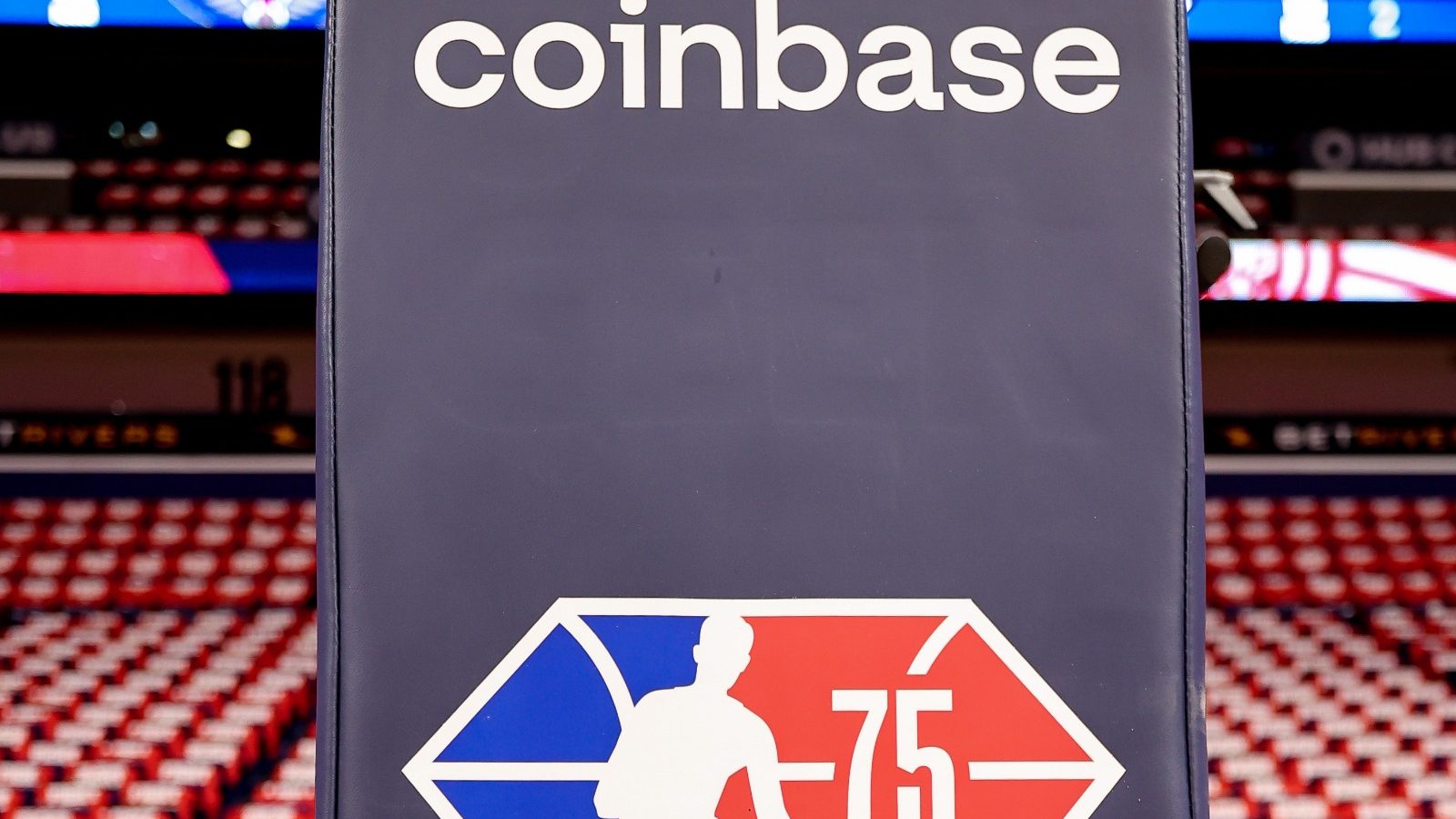Jontay Porter conspires to fake an injury. Terry Rozier (allegedly) does the same thing. Damon Jones (allegedly) tells people a certain superstar is going to sit. Chauncey Billups (allegedly) tells people he’s going to sit his starters.
All of the above? They were done to (allegedly) manipulate gambling markets.
And as a result of those instances above, the FBI got involved, arrests were made, and a United States congressional committee is demanding answers.
Meanwhile, Coinbase CEO Brian Armstrong — this is a company with a market cap of over $84.4 billion — gets on an earnings call this past Thursday and ends it with the following, and this is not alleged: “I was a little distracted because I was tracking the prediction market about what Coinbase will say on its next earnings call, and I just want to, you know, add here the words Bitcoin, Etherium, blockchain, staking, and Web3 to make sure we get those in before the end of the call.”
Armstrong, after the call and posting on X, called his stunt — which, according to TradingView.com, moved over $84,000 worth of contracts from “no” to “yes” — “fun.”
The outrage has been … (insert crickets chirping gif).
Of course, some people weren’t exactly tickled.
“Brian, I lost around $10,000 on all of these words. Do you still think this was fun?” wrote “CarOnPolymarket,” responding to Armstrong’s tweet.
User “Euan” took it a step further, showing a $12K+ contract he bought on Armstrong not saying “Web3,” and claiming they plan to lawyer up as a result.
But the vast majority of the response? Shrugs. Chuckles. Business as usual in the wild west of prediction markets.
And — dare I go pretty far out on a limb here — here lies some heavy-duty hypocrisy at the heart of American gambling culture in 2025.
It’s all manipulation
Several NBA players and coaches are accused of manipulating betting outcomes, and the world is treating it like a five-alarm fire threatening the integrity of sport itself. Federal agents. Congressional questions. Lifetime bans. The full weight of outrage from nearly every corner of the media universe.
But when a tech billionaire in a Patagonia vest (I’m guessing) openly brags about manipulating prediction markets for his own amusement, completely and utterly flipping a market from zero to 100, it’s “fun.”
Just imagine Jontay Porter tweeting out it was “fun” after he faked his injury.
The double standard is almost too obvious to require stating. Almost. (To be fully and completely clear: I am 100% in favor of, or at least OK with, the idea of prediction markets.)
So what’s the difference?
Both the NBA scandal and the Coinbase “fun” involve someone with inside information using that knowledge to influence gambling markets. Both involve people winning and losing real money. Both undermine the fundamental premise that these markets are fair. Yet the NBA scandal resulted in the FBI getting involved, and the Coinbase situation — I’m quite confident — will not.
If I had to guess, I’d say the difference isn’t in the acts themselves, as the results are exactly the same, namely: markets, manipulated.
But it’s in the “who’s doing it and where” portion of the program that, apparently, makes the difference. Sports betting still brings out the pearl-clutchers and, every so often, involves people named Albanian Bruce and Spanish G.
But prediction markets? They’re not gambling, wink wink, nod nod. They’re exchanges where people trade contracts with payouts based on the outcome of future real-world events.
The NBA players allegedly conspired in secret, which made their actions feel sinister.
Armstrong did it in plain sight on an earnings call, which made it feel cheeky and not criminal.
But if you lost $10,000 because Terry Rozier may have faked an injury or because Brian Armstrong dropped “Web3” for the lulz, does the way you lost — planned manipulation or on-the-spot manipulation — really matter?
The truth is simple: Everything that can be bet on can be manipulated. Either manipulation of gambling markets is wrong regardless of who does it and where it happens, or we need to admit that “integrity” is just a word we use pretty damn selectively.
It’s been nearly a full day since Armstrong knowingly and willingly manipulated the markets on Kalshi and Polymarket. And it seems like no one cares, other than a couple of aggrieved X users. I guess if the manipulators are wearing suits instead of sneakers — and don’t have fancy nicknames — it’s just the free market doing its thing.





